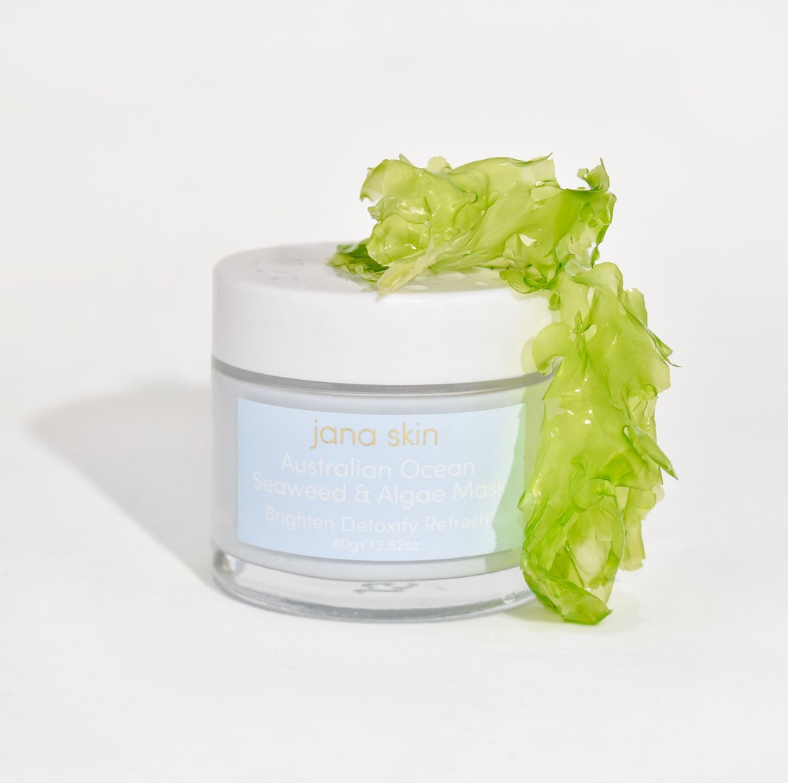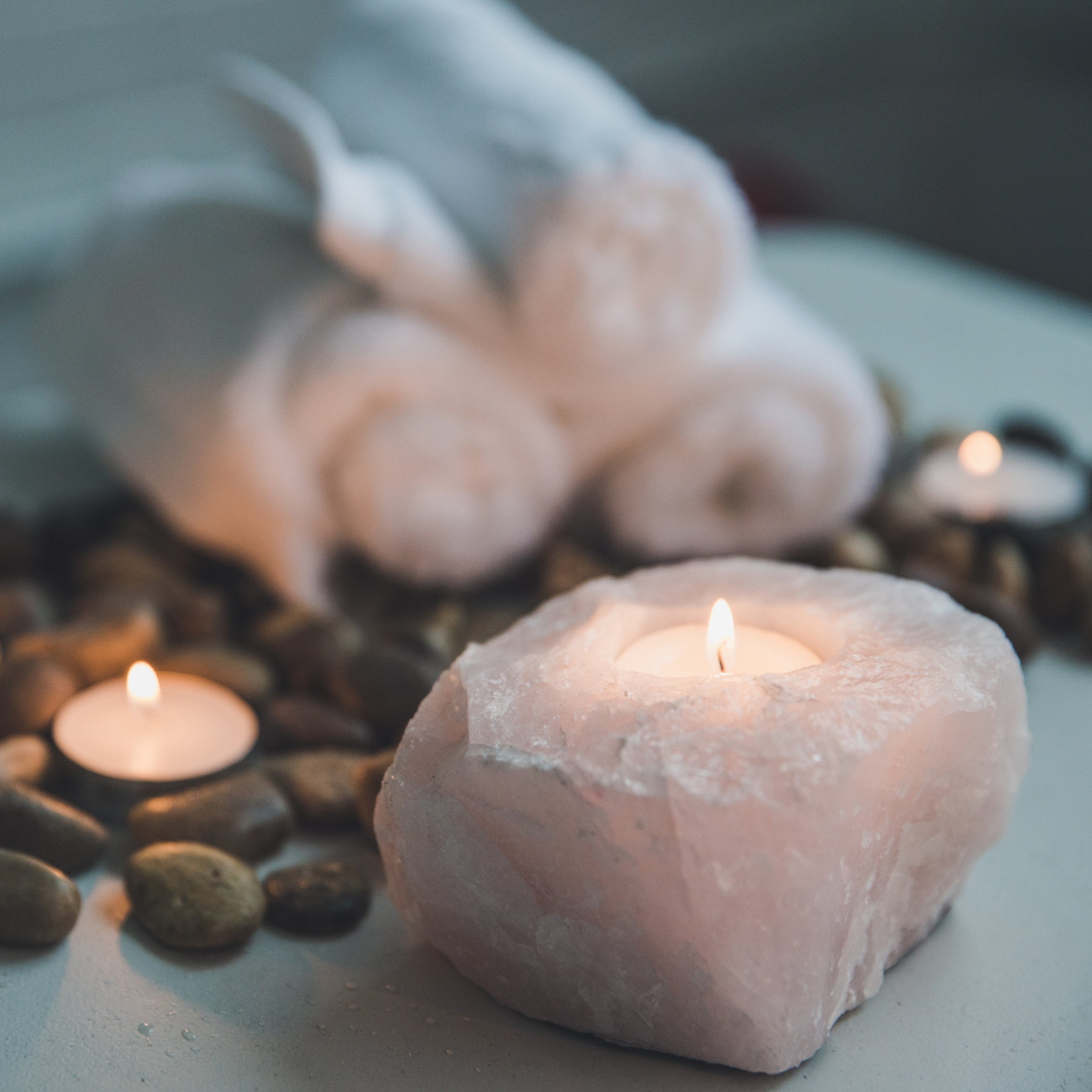Why Are Clay Masks Global Skincare Staples?
In the quest for healthy, radiant skin we often seek out popular and celebrated skincare staples, such as clay masks. Used by people around the world as part of a tried and tested beauty routine, clay masks are coveted for their ability to cleanse, smooth, and brighten.
The history of clay masks
Our love affair with clay began thousands of years ago when natural clay was celebrated for its antibacterial properties and ability to soothe skin rashes and acne. In India, clay face and body masks were used in line with Ayurvedic tradition and played a part during religious ceremonies and weddings. The Egyptians were fans of clay too, Cleopatra was known for her fondness of milk baths, but she also used clay in a bid to purify the skin. The Romans and Greeks soon followed suit with clay appearing in bathhouses and homes across the lands. Not to be left out, Native American tribes also used clay, believing it to be beneficial both spiritually and medicinally.
What are clay masks and how do they work?
As the name suggests, clay masks are made from different types of clay such as, Bentonite clay and Kaolin clay. We will explore both in more detail later. The clay masks are carefully applied to the skin where they absorb sebum (excess oil) and draw out impurities. When you wash away the clay you wash away the grime and oil that’s clogging your pores, and the clay dries out your skin. This helps to prevent pimples and acne, whilst improving the appearance and texture of the skin.
The benefits of using clay masks
Clay is a versatile substance, and masks can be used by anyone in the pursuit of glowing, healthy skin. Clay masks are particularly useful for those who are prone to oily skin and those who suffer from breakouts or acne. Let’s explore the benefits:
- Cleanse and improve the appearance of your skin
Clay masks remove excess grime and oil from your pores, leaving your skin looking fresh, and healthy.
- Improve the texture of your skin
As well as looking better, your skin will feel better too. Thanks to the properties of the clay mask the skin will feel tighter and smoother.
-
Exfoliate without irritating the skin
If you are prone to acne or sensitive skin, clay masks can be used to exfoliate minus the irritation. Regular exfoliation should result in a reduction in oil and a brighter, softer complexion.
- Reduce acne and blemishes
Unclogging your pores can help eradicate pimples, blackheads, whiteheads, and mild acne.
- Fight the signs of aging skin
There’s a suggestion that clay masks can stimulate collagen, which is great for fighting wrinkles and fine lines. Clay masks can also boost the elasticity of the skin, resulting in firmer, tighter skin.
- Combat toxins
Clay masks may be able to offer some protection to the skin, guarding against pollution, environmental contaminants, and toxins.
- Improve skin tone
Tired and stressed skin can be prone to redness, rashes, and irritation. You can decrease inflammation by using a clay mask that soothes and calms, reducing redness and inflammation.
Are there any risks involved when using clay masks?
Clay masks are safe to use and are a great way to give your skin a much-needed boost. As with all products, it’s important to follow any instructions you receive, particularly in terms of how often you should use the mask. Overuse could cause your skin to become too dry.
Bentonite Clay Vs Kaolin Clay
Different types of clay can be used to make masks, and two of the most popular are Bentonite and Kaolin. A natural clay, derived from volcanic ash, Bentonite boasts a soft, fine texture, and can be combined with water to create a paste. The paste can be used to alleviate skin conditions such as poison ivy/poison oak-related dermatitis, diaper rash, ulcers, cuts, rosacea, eczema, and psoriasis. It can also be ingested to ease digestive problems and toxins.
Bentonite is a pretty impressive skincare ingredient too and is used to make a range of soap and face masks. The versatile clay is highly absorbent, so it can soak up excess oil, it also works well to cleanse and moisturize the skin. Bentonite clay gets a tick in the box for its skincare properties, but if you’re seeking a milder option, you should consider Kaolin clay.
Kaolin is a natural clay packed full of detoxifying components and minerals. It’s been suggested as a tonic for whitening teeth, treating diarrhoea, combatting ulcers, and tackling toxins. Kaolin clay is also an impressive skincare ingredient, it’s just as versatile as Bentonite but is gentler than its counterpart. Kaolin clay can be used to cleanse and exfoliate the skin and can be used to treat acne and blemishes. So, without further ado, let’s take a better look at Kaolin clay – what it is, where it comes from, and what it can do for you.
What is Kaolin Clay
Chiefly made up of the mineral Kaolinite, Kaolin clay is also known as white clay and China clay. Its name is derived from Kao-ling, the hill in China where the clay was originally extracted. Nowadays, Kaolin is unearthed in various locations around the globe, such as the USA, Brazil, and Australia, where it favours humid conditions and grows in rich soil.
The clay consists of minuscule mineral crystals such as silica and natural minerals such as zinc and manganese. Over the years Kaolin has become a key ingredient in treating gastro issues and is widely used to create skincare products.
Despite being known as a white clay, Kaolin does come in different colours. Colouring can be added to white clay so it takes on a pink hue and sometimes you’ll find Kaolin clay in shades of orange through to red (due to oxidization and the presence of rust).
There’s also green kaolin clay which comprises iron oxide and plants (which goes some way to explaining its green colouring). Green clay is known to be drying, so works particularly well as a tonic for those with oily skin and acne sufferers.
Why is Kaolin Clay a miracle ingredient?
Kaolin clay is mild enough to be used by all, regardless of skin type. With pH levels relatively close to human skin, Kaolin is gentle enough for even those with sensitive skin or dry skin. As a miracle ingredient that works exceptionally well as a cleanser and detoxifier, while being gentle and not causing irritation, Kaolin is hard to beat. The clay smooths and cleanses, giving the skin a healthy glow and boosting its texture and tone.
Where can I buy quality clay masks containing Kaolin clay?
Jana Skin is a natural, vegan, and cruelty-free brand on a mission to highlight the need for self-care. Inspired by the beauty of Australian beaches, Jana Skin formulated their Australian Ocean Seaweed & Algae Mask using high-quality, natural botanicals. Gentle but powerful, and made with cold-extracted seaweeds and algae (Blue Spirulina, Sea Lettuce, and Neptune Kelp) and the finest Aussie kaolin clay, the Jana Skin mask will brighten, detoxify, and refresh.




Comments